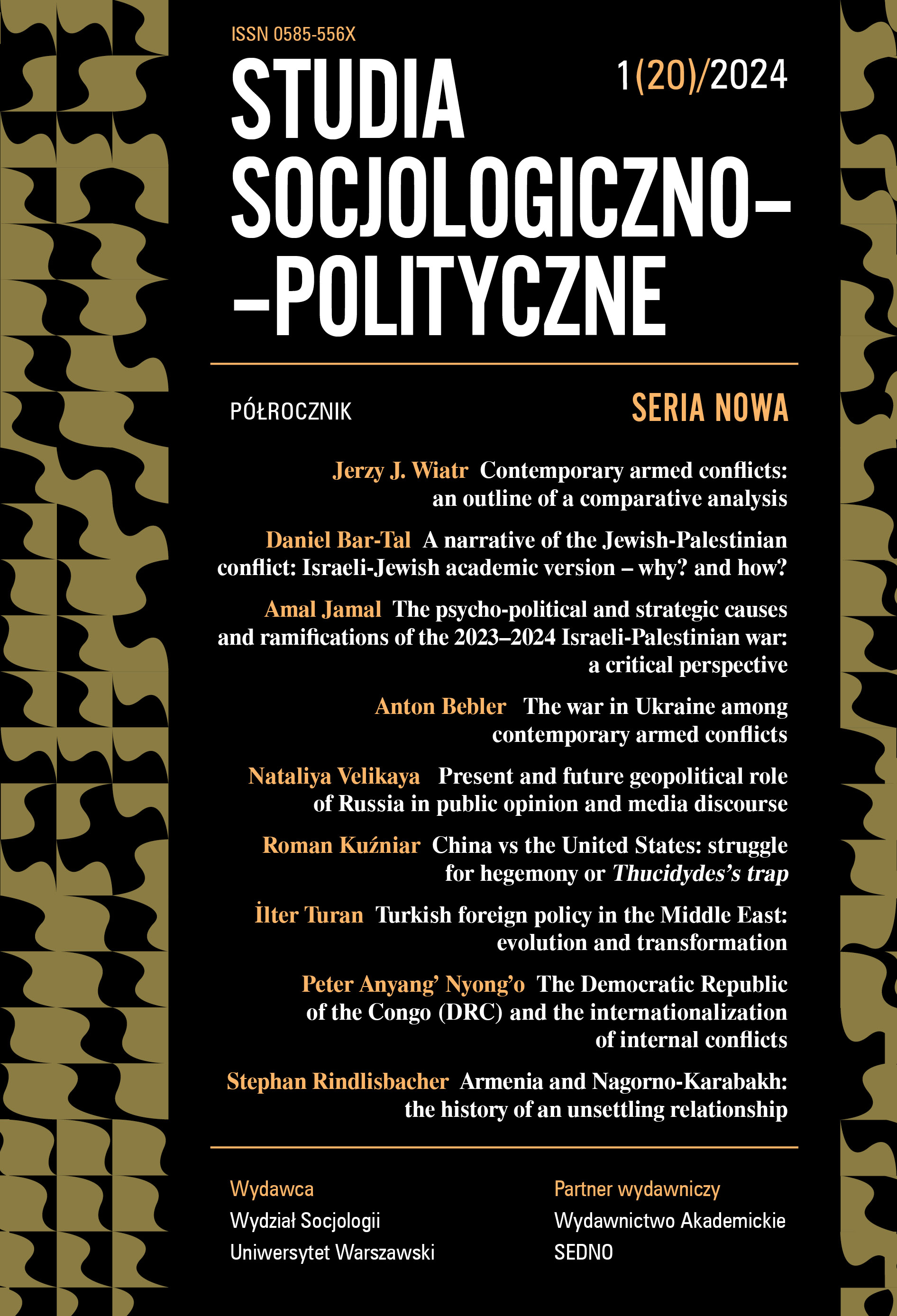TURKISH FOREIGN POLICY IN THE MIDDLE EAST:
EVOLUTION AND TRANSFORMATION
TURKISH FOREIGN POLICY IN THE MIDDLE EAST:
EVOLUTION AND TRANSFORMATION
Author(s): İlter TuranSubject(s): Politics / Political Sciences, Politics, History, Political Theory, Political Sciences, Political history, Recent History (1900 till today), Special Historiographies:, International relations/trade, Military policy, Political behavior, Politics and religion, Politics and society, 19th Century, Present Times (2010 - today), The Ottoman Empire, Geopolitics, Peace and Conflict Studies, Asylum, Refugees, Migration as Policy-fields
Published by: Wydział Socjologii Uniwersytetu Warszawskiego
Keywords: Turkish foreign policy; the Middle East; the Arab Spring; the Justice and Development Party (AKP); Sunni majority states
Summary/Abstract: After its founding, the Turkish Republic kept its distance from Arab affairs. During the interwar period, Türkiye worked to develop its own national identity while maintaining a balance between imperialist and revisionist powers. After WWII, Türkiye, threatened by Soviets, joined NATO whereas the newly independent Middle Eastern states viewed Russia as an anti-colonialist friend. The coming of détente and changes in Turkish economic policy toward export-led growth, guided Türkiye to develop closer economic relations with its neighbors. Its clear foreign policy rule, however, was not getting involved in the politics of any Arab country or in inter-Arab matters. The Arab Spring led the religiously oriented AKP to judge that Türkiye could lead Sunni-majority countries. Facing total failure, Türkiye is trying to restore former relations with regional countries but lacking trust, this is a slow and only partially successful process.
Journal: Studia Socjologiczno-Polityczne. Seria Nowa
- Issue Year: 20/2024
- Issue No: 1
- Page Range: 139-162
- Page Count: 24
- Language: English

